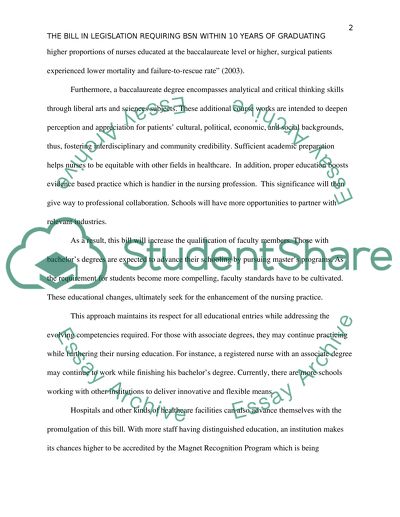Cite this document
(“The Bill in Legislation Requiring BSN within 10 Years of Graduating Assignment”, n.d.)
The Bill in Legislation Requiring BSN within 10 Years of Graduating Assignment. Retrieved from https://studentshare.org/nursing/1431767-discuss-the-bill-in-legislation-requiring-bsn
The Bill in Legislation Requiring BSN within 10 Years of Graduating Assignment. Retrieved from https://studentshare.org/nursing/1431767-discuss-the-bill-in-legislation-requiring-bsn
(The Bill in Legislation Requiring BSN Within 10 Years of Graduating Assignment)
The Bill in Legislation Requiring BSN Within 10 Years of Graduating Assignment. https://studentshare.org/nursing/1431767-discuss-the-bill-in-legislation-requiring-bsn.
The Bill in Legislation Requiring BSN Within 10 Years of Graduating Assignment. https://studentshare.org/nursing/1431767-discuss-the-bill-in-legislation-requiring-bsn.
“The Bill in Legislation Requiring BSN Within 10 Years of Graduating Assignment”, n.d. https://studentshare.org/nursing/1431767-discuss-the-bill-in-legislation-requiring-bsn.


